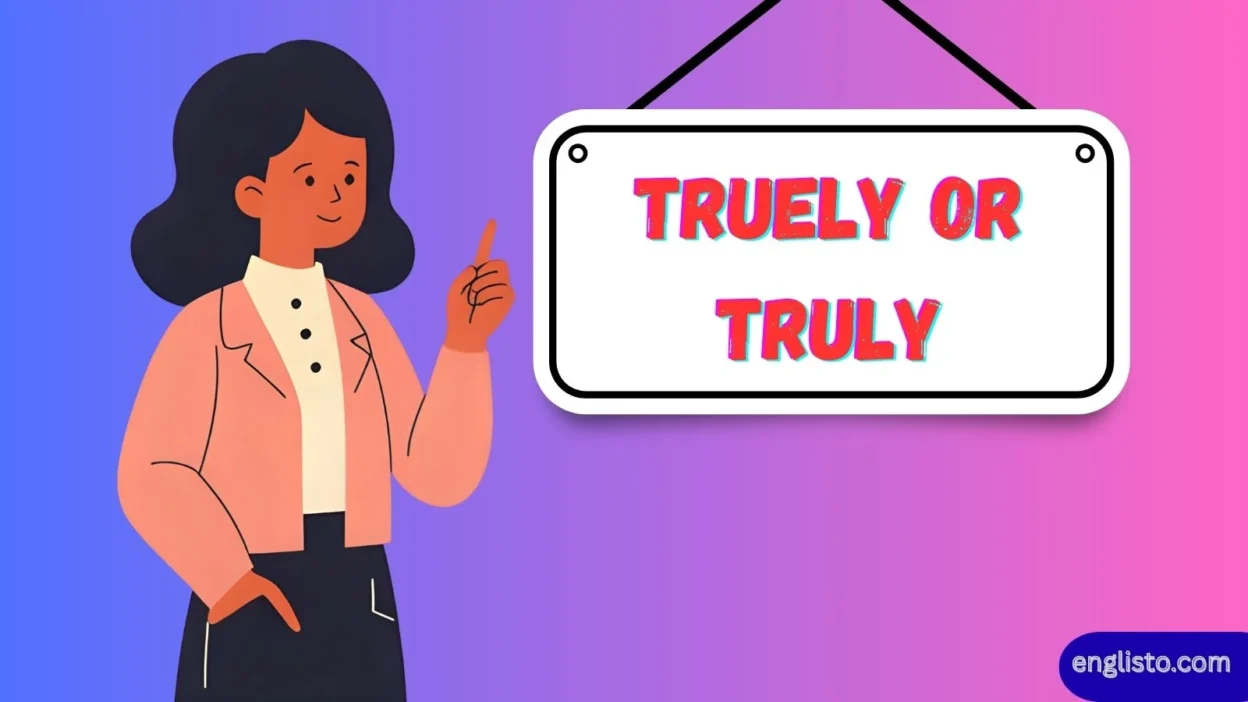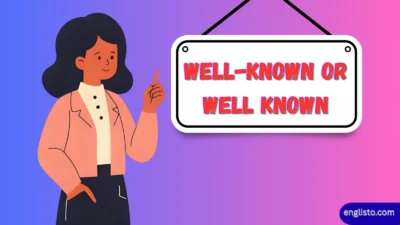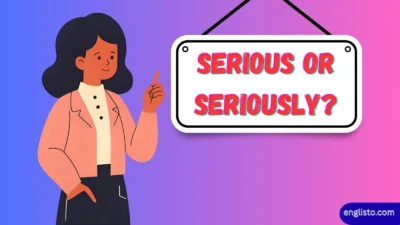Language evolves, but certain spelling choices stand the test of time. One such case is the word “truly”, often misspelled as “truely.” While the mistake might look small—just a single extra “e”—its implications for polished writing, grammar accuracy, and professional communication are significant. In this comprehensive guide, we’ll explore the history, grammar, examples, and even the cultural impact of this deceptively simple spelling choice. Truely or Truly.
Whether you’re a student writing an essay, a professional drafting an email, or simply someone who wants to avoid embarrassing grammar mistakes, this article will help you master the difference once and for all.
The Core Question: Truely or Truly?
The short answer is simple:
- Correct spelling: Truly
- Incorrect spelling: Truely
“Truly” is the standard adverbial form of the adjective true. Despite what intuition might suggest, English does not retain the “e” before adding -ly. That’s why truely is a misspelling.
Why “Truly” Drops the “E”
English spelling rules are full of quirks, but there’s a logic behind this one:
- Many adjectives ending in -e drop the -e when forming adverbs with -ly.
- True → Truly
- Due → Duly
- Whole → Wholly
- True → Truly
This is consistent with orthographical standardization set in motion during the 17th and 18th centuries. Dictionaries by Samuel Johnson (1755) and later by Oxford English Dictionary helped solidify “truly” as the correct form.
Here’s a quick table to compare similar transformations:
| Adjective | Correct Adverb | Incorrect Form (Common Mistake) |
| True | Truly | Truely |
| Due | Duly | Duely |
| Whole | Wholly | Wholely |
| Absolute | Absolutely | Absolutley |
| Nice | Nicely | Niceley |
Historical Origin of “Truly”
The word true traces back to Old English trēowe, meaning faithful or loyal. Its adverbial form, trulīce, appeared in Middle English texts, evolving into modern truly.
During Shakespeare’s time, variant spellings like truely occasionally appeared in manuscripts, reflecting the lack of standardized spelling. For example, in early folios of Hamlet, scribes wrote “truely” interchangeably. But as dictionaries became widespread, “truly” emerged as the recognized and accepted form.
Common Contexts and Examples
To see why spelling matters, let’s compare sentences:
- Correct: She spoke truly about her experiences.
- Incorrect: She spoke truely about her experiences.
Other examples:
- The performance was truly wonderful.
- I truly appreciate your effort.
- He is truly talented and dependable.
Notice how truly works as an adverb modifying adjectives (wonderful, talented) or verbs (appreciate).
Why “Truely” Still Appears Today
Despite being incorrect, “truely” shows up in texts, search engines, and even casual emails. Why?
- Phonetic Influence – Writers assume the silent “e” in true should remain.
- Consistency with Other Words – Words like blue → bluely (rare but technically possible) trick learners into thinking truely is logical.
- Historical Spellings – Earlier manuscripts tolerated spelling variation.
- Typing Mistakes – Fast typing or autocorrect slip-ups.
Grammar and Usage: Truly as an Adverb
“Truly” belongs to the category of adverbs of manner—it describes how an action is done.
Examples:
- She sings truly like an angel.
- He worked truly hard last night.
- This essay is truly polished and professional.
Functions of “Truly” in Sentences
| Function | Example | Explanation |
| Modifying a verb | She truly believes in honesty. | Expresses sincerity of belief. |
| Modifying an adjective | That was a truly remarkable book. | Intensifies the adjective. |
| Modifying another adverb | He ran truly quickly. | Adds emphasis to the degree. |
| Idiomatic/figurative | Truly yours, | Standard sign-off in formal letters. |
Synonyms and Alternatives
Sometimes you may want to vary your language. Here’s a list of synonyms:
| Synonym | Nuance | Example |
| Really | Informal, common | I really appreciate your help. |
| Genuinely | Emphasizes sincerity | She is genuinely kind. |
| Sincerely | Formal, heartfelt | I sincerely apologize. |
| Absolutely | Strong emphasis | That’s absolutely correct. |
| Honestly | Linked to truth | Honestly, I don’t know the answer. |
Spelling Mistakes: A Broader Perspective
“Truely” is just one in a long list of commonly misspelled words. Some parallels include:
- Fourty → Forty
- Preferrably → Preferably
- Fullproof → Foolproof
- Judgement (US) → Judgment (though “judgement” is still standard in UK English)
Spelling errors may seem small, but they affect professionalism and readability.
Tools to Avoid Mistakes
Modern writing offers plenty of resources:
- Grammarly – Flags spelling mistakes in real-time.
- ProWritingAid – Style and grammar checker.
- Microsoft Word / Google Docs – Built-in proofreaders.
- Promova App – Helps practice spelling through quizzes.
Quote to remember:
“The difference between the almost right word and the right word is really a large matter—it’s the difference between the lightning bug and the lightning.” – Mark Twain
Real-Life Implications of Spelling
Correct spelling signals:
- Professionalism – Job applications and emails demand accuracy.
- Clarity – Misspellings can cause confusion.
- Trust – Readers take polished writing more seriously.
Imagine sending a client proposal with “truely.” It may seem trivial, but it subtly undermines credibility.
Cultural and Literary Examples
Great authors consistently used “truly”:
- Ernest Hemingway in A Farewell to Arms: “The world breaks everyone and afterward many are strong at the broken places. But those that will not break it kills. It kills the very good and the very gentle and the very brave impartially. If you are none of these you can be sure it will kill you too but there will be no special hurry.” – Here “truly brave” appears in commentary about war.
- Shakespeare often played with truth, sincerity, and authenticity—concepts tied closely with “truly.”
- Modern authors like Taylor Jenkins Reid (The Seven Husbands of Evelyn Hugo) use “truly” to convey genuine emotions.
Quick Mnemonics to Remember
- Drop the E: When forming adverbs from adjectives ending in “e,” drop the “e” before adding “-ly.”
- Think of “Duty → Duly.” If “duely” is wrong, so is “truely.”
- Rhyme Trick: Blue is bluely, but true is truly.
FAQs About “Truely” vs. “Truly”
Q1: Is “truely” ever acceptable?
No. It’s considered a misspelling in modern English, though it appeared historically.
Q2: Why doesn’t “truly” keep the “e”?
Because English drops the final “e” before “-ly” in most cases (true → truly, due → duly).
Q3: Do US and UK spellings differ here?
No. Both American and British English agree on “truly.”
Q4: Can “truly” be used in formal writing?
Absolutely. It’s common in essays, business writing, and literature.
Q5: What part of speech is “truly”?
It’s an adverb modifying verbs, adjectives, or other adverbs.
Conclusion
When faced with “truely” or “truly,” there’s only one correct choice: truly. This small but important distinction highlights the need for careful spelling in professional, academic, and everyday writing. From its Old English roots to modern grammar rules, “truly” reflects both linguistic history and the importance of clarity in communication.
By understanding its formation, usage, and common mistakes, you can write with confidence—knowing your words are truly correct.



